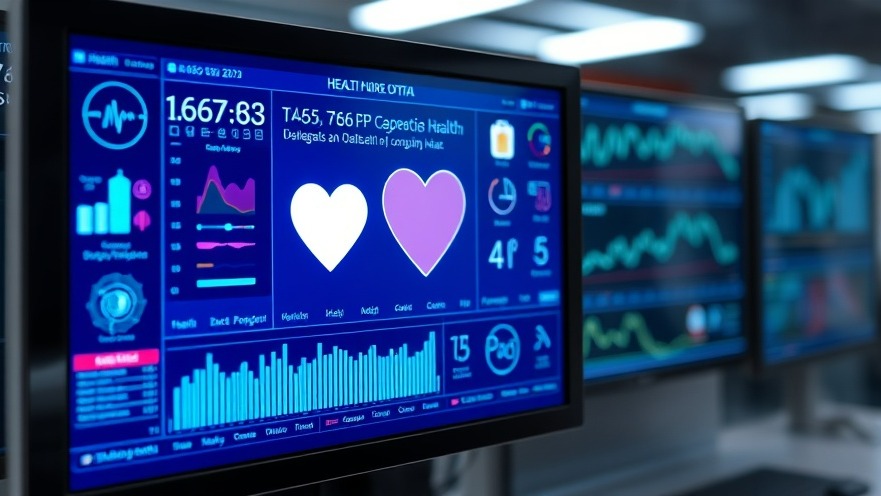
The New Digital Era for Community Hospitals
In today's healthcare world, the ability for community hospitals to manage their operational independence while embracing technological advancements is paramount. The emergence of Qualified Health Information Networks (QHINs) heralds a new digital frontier in health data exchange, drastically transforming how community hospitals operate. Historically, technology was a double-edged sword, often leading small hospitals into complex dependence on larger medical systems. Now, QHINs present a unique opportunity for these institutions to regain autonomy without sacrificing quality of care.
QHINs: Empowering Local Healthcare
As part of the federal Trusted Exchange Framework and Common Agreement (TEFCA), QHINs facilitate seamless health data sharing. This initiative is revolutionary for hospitals in rural or underserved regions: patients can access their health information without being tied to a single healthcare provider. A 25-bed critical access hospital can connect directly with major health systems and pharmacy chains, all while maintaining operational independence. The real benefit arrives when EHRs (electronic health records) are designed to fully leverage QHIN capabilities.
Redefining Partnerships in Healthcare
The introduction of QHINs allows smaller hospitals a fresh opportunity to redefine their partnerships. They no longer need to choose between outdated systems with substantial limitations or less autonomy over their patient data. Instead, QHIN participation offers a myriad of options: community hospitals can own and manage their versions of modern EHR systems, connect with Federally Qualified Health Centers (FQHCs), and compete based on the quality of care rather than sheer size. This independence is vital for thriving in an increasingly competitive healthcare environment.
Operational Benefits: Financial and Clinical Improvements
Integrating QHIN-connected EHRs not only enhances interoperability but also significantly boosts operational efficiency for community hospitals. The financial implications are profound: improved clinical documentation integrity (CDI) leads to better decision-making and faster claims processing. A physician treating a patient with congestive heart failure (CHF) exacerbation can access critical prior records automatically, thereby ensuring completeness in documentation.
With streamlined operations, hospitals can improve charge capture processes. Timely and accurate documentation reduces the risk of errors that could lead to revenue losses. Furthermore, QHIN capabilities enable precise risk adjustment and enhance case mix accuracy, allowing smaller facilities to compete more effectively with larger systems.
Ignoring the Importance of Choosing the Right EHR Vendor
While the shift to QHIN-connected EHRs is promising, not every vendor is prepared to take full advantage of this infrastructure. Hospitals must be diligent in selecting EHR partners committed to facilitating integration with QHINs rather than absorbing them into larger platforms. This is crucial for maintaining independence and ensuring that the hospitals remain the primary beneficiaries of their data.
The Future of Community Hospitals
As we look to the future, QHINs will continue to shape the landscape of health data sharing. The potential for community hospitals is untold: by fostering partnerships and leveraging advanced technologies, they can streamline operations and improve patient care outcomes. The overarching message is clear—community hospitals can thrive in this new environment by adopting strategies that embrace data interoperability while preserving their independence.
The transition to QHIN-connected EHRs symbolizes more than a technological shift; it signifies a longstanding chance for health practitioners in community settings to reassert control over their operations. As the healthcare landscape continues to evolve, those who adapt will prosper, and those who resist may find themselves struggling to keep pace.
By understanding and implementing QHIN-based strategies, concierge health practitioners can navigate this new digital landscape. Taking proactive steps towards these technologies will bolster both practice growth and the satisfaction of the communities they serve.
If you’re looking to grow your practice and are feeling overwhelmed by the technical landscape, now is the time to engage with QHIN technologies and partner with vendors that support community independence. Start advocating for your practice's needs today and enhance your standing in the healthcare community.
 Add Row
Add Row  Add
Add 




Write A Comment